You can spread the cost of your everyday spending. From holidays to large purchases, a credit card can help.


Compare credit cards without harming your credit score
Compare credit cards without harming your credit score
Join Canada’s fastest growing Credit Report and Marketplace app
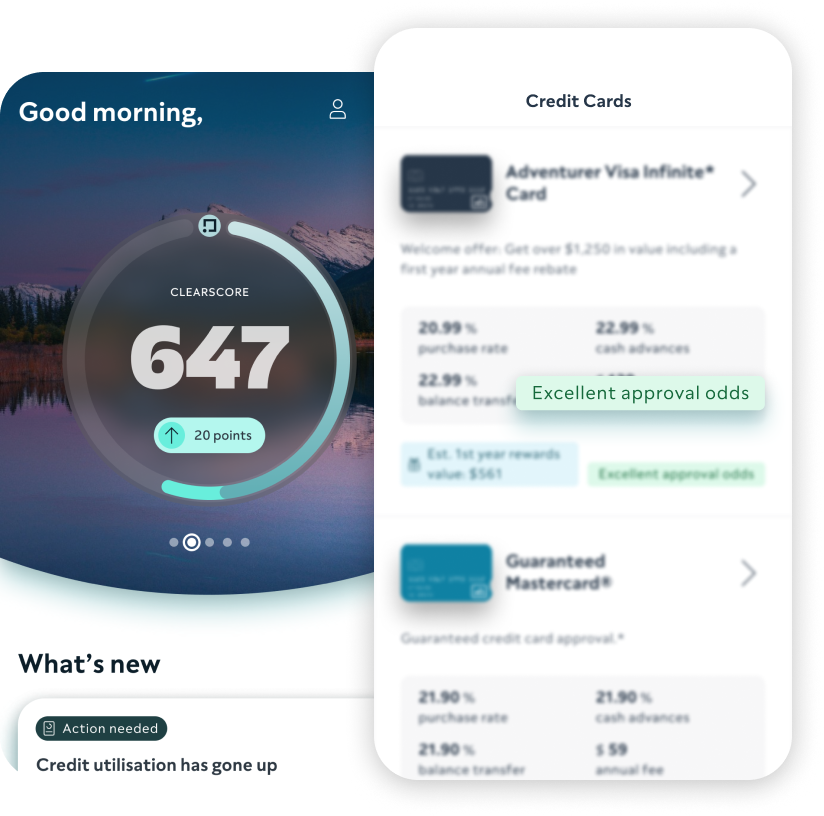
![]()
Explore offers tailored to you
![]()
See your approval odds before you apply
![]()
Get your credit score and report for free
![Shield Icon]()
Know your data is safe
Compare credit cards from Canada's most trusted lenders

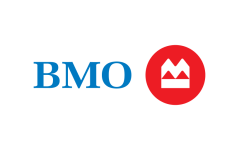
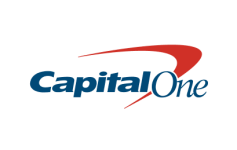
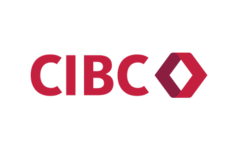
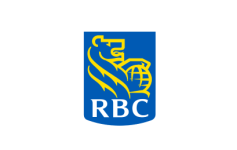

Making it easy to find the right credit card for you
1. Sign up
Signup in 3 minutes to get your personalized offers.
2. Compare credit cards
We’ll show you offers tailored to your score so you can find the credit card that’s best for you.
3. Apply for your credit card
Apply confidently knowing your approval chances.
Spend less time browsing for cards that aren’t right for you.
What's a credit card?
A credit card allows you to borrow money to pay for goods and services with the promise that you’ll repay the card provider what you owe at a future date, usually with interest added.
It lets you spread the cost of what you buy
Every month, the lender will send you a bill – or statement – and you’ll need to pay back the money you’ve spent.
The lender can charge you interest on the money you carry over
If you carry over some of the balance to the next month, the lender can charge you interest.
Some credit cards come with 0% interest periods, but you should always check the annual percentage rate (APR) before you apply for a credit card.
How much you spend affects your credit score
That’s called credit utilization – which just means how much of your available credit you use every month. Keeping your credit card utilization to less than 35% is a good way of showing you’re managing money responsibly.
Your personalized offers are here
When you compare credit cards on ClearScore, your offers are tailored to your credit score.
We’ll show you your approval chances before you apply – so you can be more sure of getting a ‘yes’.
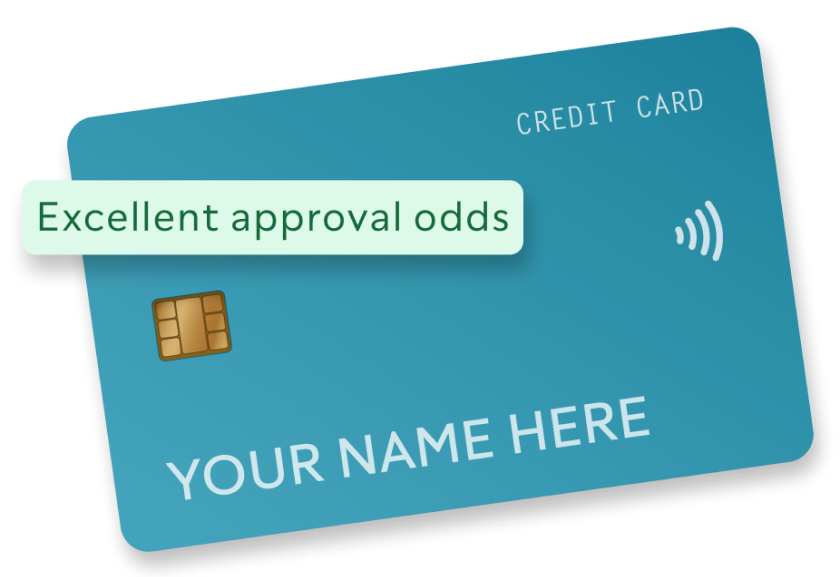
The benefits of a credit card
A credit card can be a great way to spread the cost of everyday spending.
Some credit cards come with rewards – like cashback, air miles or travel insurance.
You can use it to build your credit score by paying back what you borrow on time and in full.
How to choose the right credit card for you
To help narrow down your options, think about these things before applying for a credit card.
Know what you want it for
Deciding what you’d like to use the card for – transferring your balance, building your credit score, or rewards, for example – is the first step.
Check the interest rate
Some cards come with 0% interest for a few months. So make sure you know what the interest rate will be after the promotional period ends. Other cards will come with high interest rates from the start – but if you’re confident you can make the repayments in full every month, you won’t need to worry about the rate as much.
Look for additional fees
Rewards cards, for example, often come with an annual or monthly fee. And some other cards will charge you for taking out money at a cash machine. The lender should make it clear what fees apply in their terms and conditions.
Find out what your eligibility is
When you apply for a credit card, lenders will carry out a hard search – this will show on your credit report and be visible to other lenders. So, it’s a good idea to know what your chances are before starting the application process. At ClearScore, we’ll show you your approval chance for each credit card.

The different types of credit cards
There are lots of credit cards out there – find the one that works for you.
Credit builder card
Credit builder cards help you build your credit score. The interest rates can be high and the credit limit low, but you could start to see your score improve if you keep up with the monthly repayments.
Cashback Card
Cashback cards let you earn a money back based on the transactions you make. This can vary by type of transaction. The interest rates can be high and some cashback cards come with a monthly or annual fee. Many cards come with great welcome offers.
Reward card
Rewards credit cards let you earn points or air miles when you make certain transactions. The interest rates can be high and some reward cards also come with a monthly or annual fee. Many cards come with great welcome offers.
Balance transfer card
Balance transfer cards let you transfer your existing credit card balance onto another card. They usually come with 0% interest periods. You could use one of these cards to consolidate your debt and pay it off within the low- or 0% interest period.
Some lenders offer dual credit cards that come with a mix of benefits – like 0% on balance transfers and purchases for a fixed period.
The risks of a credit card
Credit cards are a form of debt – it’s important make sure you can afford the repayments. Getting to grips with the basics
You could harm your credit score if you can’t keep up with the monthly repayments.
Using credit cards increases your debt which is why it’s important to budget in advance.
Some cards come with additional charges – like an annual fee or higher interest rates after a promotional period ends.
See your credit card offers
Find the credit card tailored to your credit score.
The application process
With most lenders, you’ll be able to apply for a credit card online. It’s often faster than applying in person.
1
Compare your offers
The offers you’ll see are tailored to you. We’ll ask you for some information to understand what you’re looking for and show you the credit cards you’re likely to be eligible for.
2
Apply for your credit card
We’ll show your approval chances when you search for a credit card – saving you time and effort. You might have to give the lender some more information and then they’ll carry out a hard search against your credit history.
3
Wait for your card to arrive
If you’re approved, it shouldn’t take long to get your card in the mail. You’ll be able to use your new credit card as soon as you activate it.
How do lenders decide to give you a credit card?
Lenders look at the information in your credit report to see if you have a history of managing money responsibly. If you’re new to credit, or you have a bad credit score, there are things you can do to build your score. If you can’t get a credit card, there could be a few different reasons and things you can do.
Getting a credit card with a bad credit score
If you have a bad or low credit score, you could still get a credit card. You might be offered a lower credit limit and higher interest rates but, at ClearScore, we work with lenders who specialise in helping you find signup and compared credit cards for bad credit.
And, by making repayments on time and in full, you could start to build your credit score.
Do more with ClearScore
Get a preview of incoming changes
Whether you’re adding a new account, removing an old one, or just changing how much credit you use – you’ll find it here.
Take a closer look at your accounts
We’ll show you whenever they've been opened or updated. You can even see how much of your available credit you’ve used and what the credit card balance is.
Save time when looking for your next offer
Your offers are personalized to you. And we’ll show your approval chance so you can feel confident about applying.
Frequently asked questions
A few things could happen if you miss a credit card payment – whether that’s by one day or longer. You might have to pay a fee (your lender will tell you) and the missed payment can appear on your credit report if you’re unable to pay within about 30 days. That could affect your ability to get credit in the future – lenders look at your credit history to see if you have a good track record of managing money responsibly. If your credit card came with a promotional offer – like a 0% interest period – you could lose that offer.
If you can’t afford to pay your credit card statement, there are things you can do that could help. You should speak to your lender straight away and talk through your options with them.
The first thing you’ll need to do is pay off any outstanding balance. You can then get in touch with your lender and start the cancellation process.
Depending on how many other lines of credit you have and how you use them, cancelling a credit card can mean you see a drop in your credit score. That’s because your overall credit utilisation (how much of your total available credit you use) would change.
Yes – if you want to pay off your credit card early, you can. If you make a repayment before your statement closing date (not the payment due date), your credit utilisation would be lower. The closing date for your statement is roughly 21 days before your payment due date.
If you want to increase your credit card limit, you might be able to if you have a history of using your card responsibly. You can get in touch with your lender to see what your options are.
A credit card can be a good way to borrow money and build your credit score at the same time. Depending on the type of credit card you choose, you could spread the cost of your purchases, receive rewards for certain transactions, use the card abroad or just transfer your balance.
APR stands for annual percentage rate. When you take out a credit card, you’ll need to pay it back ‘with interest’ if you carry over a balance. This is where APR comes in – it’s made up of the interest rate and other charges you might have to pay (like an annual fee).
Credit card APR doesn’t include fees you might have to pay if you miss a payment or take money out at a cash machine.
The interest rate you’re offered is based on all the things that make up your credit score and report. Because credit cards are a type of unsecured credit, lenders might offer different interest rates to different people, once they assess how risky it is to lend to them. That’s why someone with no, or a bad, credit history might be offered a higher interest rate.
A joint credit card means there’s a main account holder and an authorised second user. This is different to a joint bank account because the responsibility for the credit card payments (and any debt that builds up) sits with the main account holder.
The requirements to get a joint credit card are the same as when you want to take out any other type of credit card. But the lender will usually do a soft search and want you to be over 18 if you’re going to be the authorised second user. Sometimes it’s a requirement for you to live at the same address or be a family member, too.
It could be that you don’t have a long enough credit history. Or, it could be that you owe money across other credit cards or loans, or have missed some payments recently. If you can’t get a credit card, have a look at these possible reasons why.



